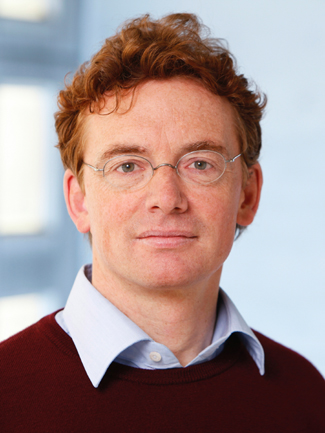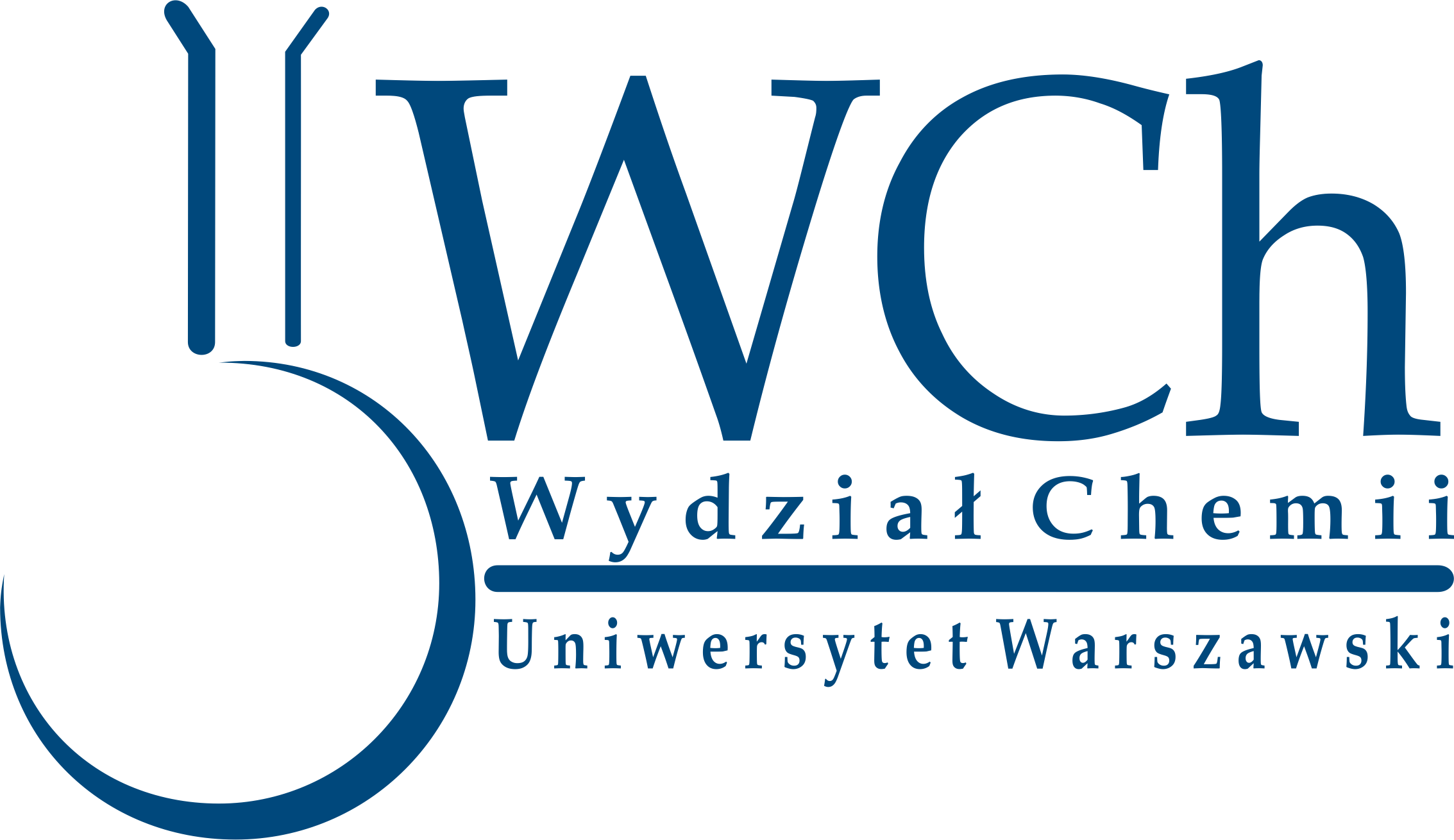Frédéric Merkt
2015 – 9th KOLOS LECTURE AWARD
May 18, 2015
by invitation from the Polish Chemical Society
and the Faculty of Chemistry, University of Warsaw
PROFESSOR FRÉDÉRIC MERKT
ETH Zurich
Laboratorium fuer Physikalische Chemie
Switzerland

LAUDATION
Frédéric Merkt was born in 1966 in Neuchâtel, in the western, French speaking part of Switzerland. He is the youngest recipient of the Kołos Medal thus far. Initially, he wanted to study medicine at the University of Neuchâtel but, fortunately to our field of science, he ended up studying chemistry at the Eidgenössische Technische Hochschule (ETH) Zurich. He was late to enroll at Neuchâtel since at the time he could register he had been locked behind bars in a military arrest for inadvertently losing a piece of equipment during military exercises. ETH Zurich accepted late registrations but did not offer a degree in medicine. So he decided for something close – that is chemistry. In Zurich he met Professor Martin Quack, who attracted him to spectroscopy and was supervising his Diploma thesis, already in the field of high-resolution spectroscopy, specifically on the measurement of the infrared spectra of freon 22 in supersonic jets.
Our Laureate obtained his doctoral degree at the age of 26 from the Cambridge University (UK) for the dissertation on the generation and spectroscopic applications of the extreme UV radiation. His supervisor was Professor Timothy Softley (now at Oxford). After a period of postdoctoral research at the University of Paris-Sud in Orsay and at Stanford University (with Professor Richard Zare), he held briefly a Research Fellowship and Lecturer position at Oxford and in 1995 he returned to Switzerland and was appointed an Assistant Professor of physical chemistry at ETH Zurich. He became the Full Professor at ETH in 1999 at the age of 33. This can be viewed as an achievement in itself since ETH Zurich is the best Technical University in Europe (according to all rankings) and one of the best Universities in the World regarding the number of Nobel Prizes received by its Professors. From the Polish perspective one may note that Gabriel Narutowicz, the first President of Poland, was a Professor at ETH Zurich from 1907 until 1919 and served as the Dean of the Civil Engineering Department from 1913 until 1919.
Professor Merkt made a brilliant career at ETH Zurich. He is now the author of over 200 papers, including influential reviews. He also co-autored and edited, together with Professor Quack, the impressive three-volume “Handbook of High-Resolution Spectroscopy” (published by Wiley in 2011). The main theme of his research has been the development of new spectroscopic techniques and applications of these techniques to the study of the electronic structure and dynamics of molecules. He has made many discoveries and obtained many important scientific results in this broad field of research. His most profound achievements are:
- Development of new, narrow-band radiation sources in the extreme ultraviolet and Terahertz ranges of electromagnetic spectrum.
- First measurements of rotationally resolved spectra of the cations of methane, ethylene, ozone, methylene, cyclo-propene, and rare gas dimers, and observation and analysis of the Jahn-Teller and rovibronic effects in these spectra.
- Development of high-resolution spectroscopy and multichannel quantum-defect theory for molecular Rydberg states, in particular the first treatment of the hyperfine structure in these spectra.
- High-precision measurements for few-electron molecules, in particular the most precise to date measurements of the ionization and dissociation energies of molecular hydrogen and deuterium. These measurements resolved discrepancies between theory and previous best experimental determinations, enabled a direct observation of QED effects in molecular spectra and were later used to establish better bounds on the hypothetical fifth force of nature.
- Development of the Rydberg-Stark deceleration technique to control the translational motion and to generate cold samples of Rydberg atoms and molecules. In particular, development of Rydberg-atom mirror, Rydberg-atom trap, and Rydberg-molecule trap.
- Development of multistage Zeeman deceleration to generate cold samples of paramagnetic atoms or molecules.
To give an idea to what kind of problems Professor Merkt’s spectroscopic virtuosity finds applications one can mention a very recent publication co-authored by him and a team of physicists. This is a paper on the measurement of the gravitational constant g for the anti-hydrogen atom falling freely on Earth. The aim of this research is to test the most fundamental symmetries of nature.
The scientific achievements of Professor Merkt made him an attractive target for an inclusion in all kinds of committees or boards. He is a member of the editorial boards of the Journal of Chemical Physics, Journal of Molecular Spectroscopy, European Physical Journal D, Chemical Physics, and Molecular Physics. He served as the President of the Division of Chemical Research of the Swiss Chemical Society, Chairman of the Institute of Physical Chemistry ETH and now serves as a member of the Selection Committee of the Alexander von Humboldt Foundation.
In recognition of his achievements he was elected to the Deutsche Akademie der Naturforscher Leopoldina (as an Ordinary Member) and to the Berlin-Brandenburgische Akademie der Wissenschaften (that is to the German Academy of Science). He is an elected Fellow of the European Physical Society and the Optical Society of America.
It is not surprising that Professor Merkt received already numerous awards, prizes, and medals. The long list of these distinctions may be viewed as an illustration of the law discovered long time ago: “The scientific prizes are not fermions, they are bosons: the more prizes one has the more likely one gets another one”. Here is the list of the most important ones:
Werner Prize of the Swiss Chemical Society
Swiss National Latsis Prize
Akademiepreis der Berlin-Brandenburgischen Akademie der Wissenschaften
ERC Advanced Grant.
Carus Medal of the Deutsche Akademie der Naturforscher Leopoldina
William F. Meggers Award of the Optical Society of America
van’t Hoff Prize of the Deutsche Bunsen-Gesellschaft for outstanding and sustained contributions to physical chemistry (received jointly with Gerard Meijer).
Otto Bayer Award (bi-annual, privately sponsored most prestigious and coveted, award in German speaking area – also because high prize money).
The newest extension on this list is the Kołos Medal awarded by the Polish Chemical Society and the Department of Chemistry, University of Warsaw. The Medal Committee has decided that the 2015 Kołos Medal is given to Professor Frederic Merkt for:
his outstanding contribution to the high-resolution spectroscopy of molecular Rydberg states.
Bogumił Jeziorski
